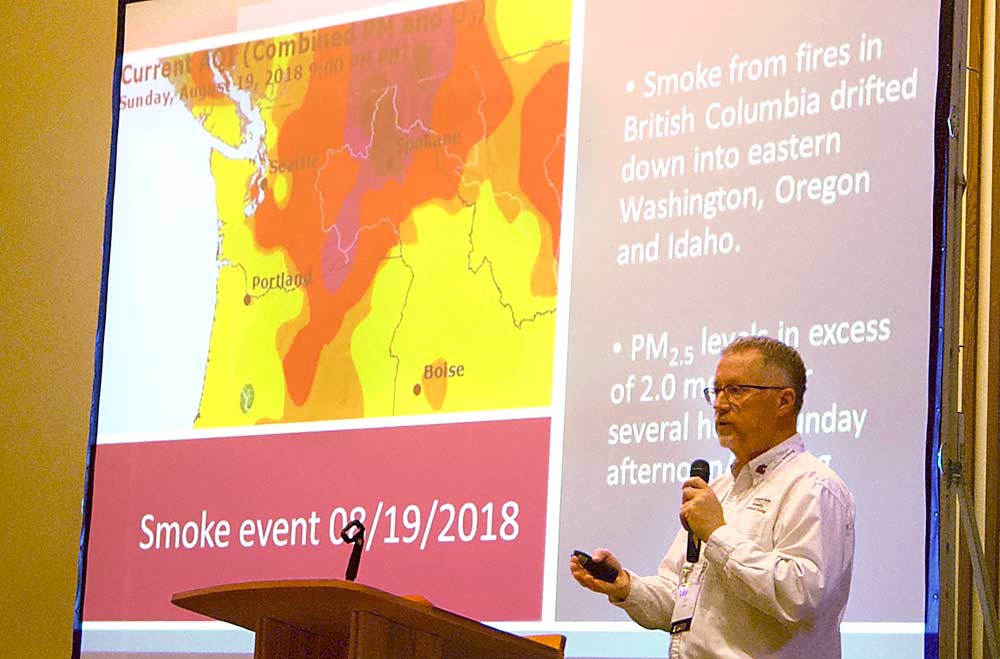
Washington State University Assistant Professor Tom Collins shows a heat map of particulate matter readings on August 19, 2018, when forest fires in British Columbia, Canada, blanketed the Pacific Northwest with smoke. Collins spoke about this smoke event during the 2018 Washington State Grape Society annual meeting in Grandview, Washington, on Nov. 15. (Kate Prengaman/Good Fruit Grower)
Widespread wildfire smoke is becoming a regular occurrence in Pacific Northwest summers, but how that smoke affects the flavor of wine grapes depends on smoke intensity, timing, and burned material, said Tom Collins, a Washington State University researcher studying the impacts of smoke on grapes and how it can be mitigated in the resulting wines.
2018 was not as smoky as 2017, but a mid-August period of smoke blowing in from Canadian wildfires was intense enough in some places to pose a risk, Collins said. That’s based on the smoke levels he uses to taint grapes in his field experiments. He spoke about his ongoing research at the Washington State Grape Society annual meeting on November 15 in Grandview, Washington.
The meeting opened with good news on concord grape prices. Washington growers received $165 per ton for conventional juice grapes and organic grapes sold for $215 per ton, according to Trent Ball, director of the agriculture program at Yakima Valley College, who analyzes industry statistics for the society’s meeting.
Acreage fell again in 2018, but enough to bring supply closer in line with demand, he said, and that has helped to reset the market and allow prices to rise.
“This is the lowest national production we’ve seen since 2012,” Ball said. “So things are looking better, the outlook is positive going forward so that’s a nice thing to be able to share with you.”
Society President Bill Riley presented the organization’s annual awards. Natural Selection Farms was recognized as the Distinguished Contributor of the year and Washington State University graduate student Katherine East was awarded the society’s scholarship.
Riley presented the Grower of the Year Award to Rick Hamman, viticulturist for Hogue Ranches.
Other topics at the meeting included pests, trunk diseases and managing aging vineyards.
-by Kate Prengaman






Leave A Comment